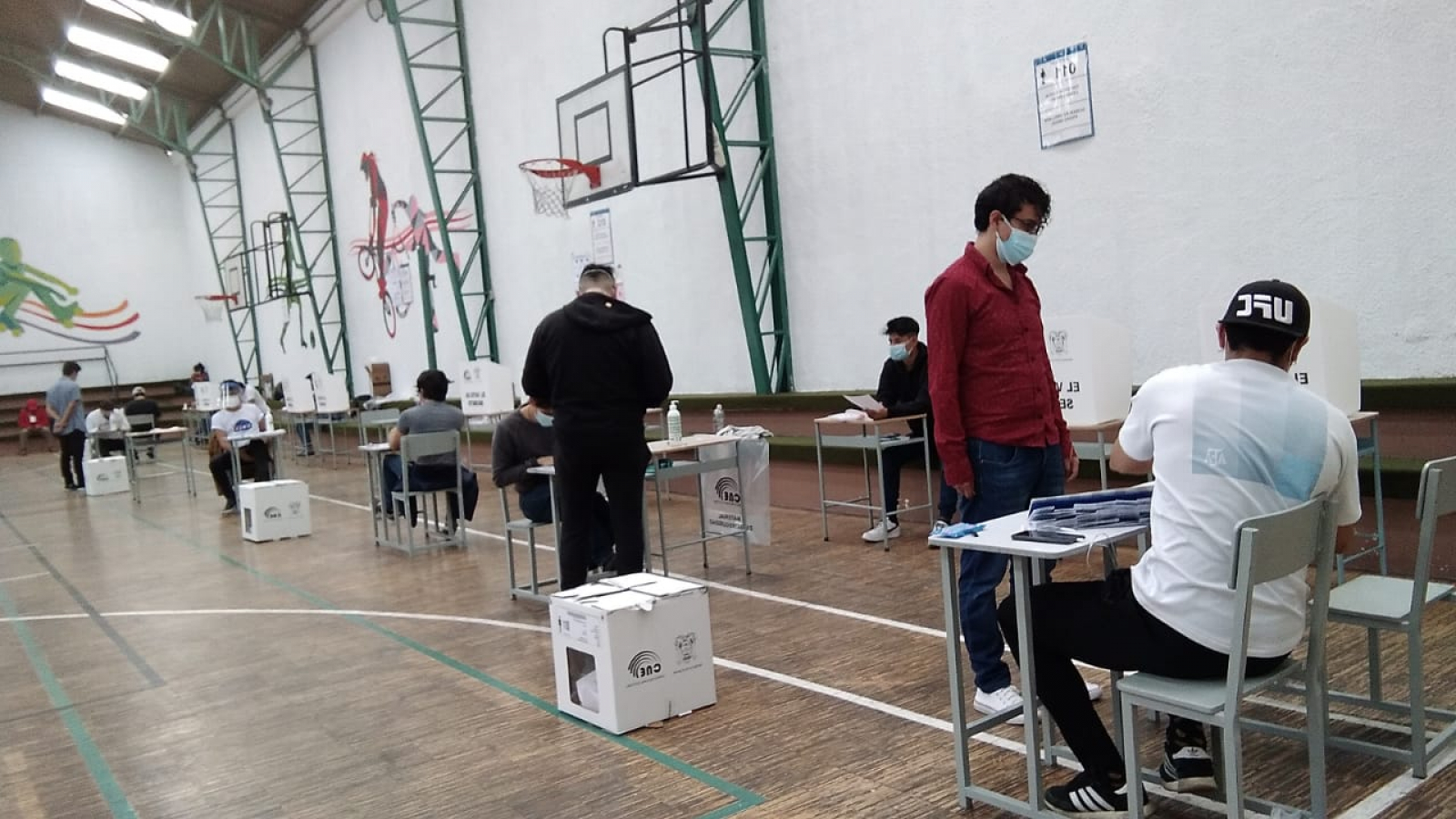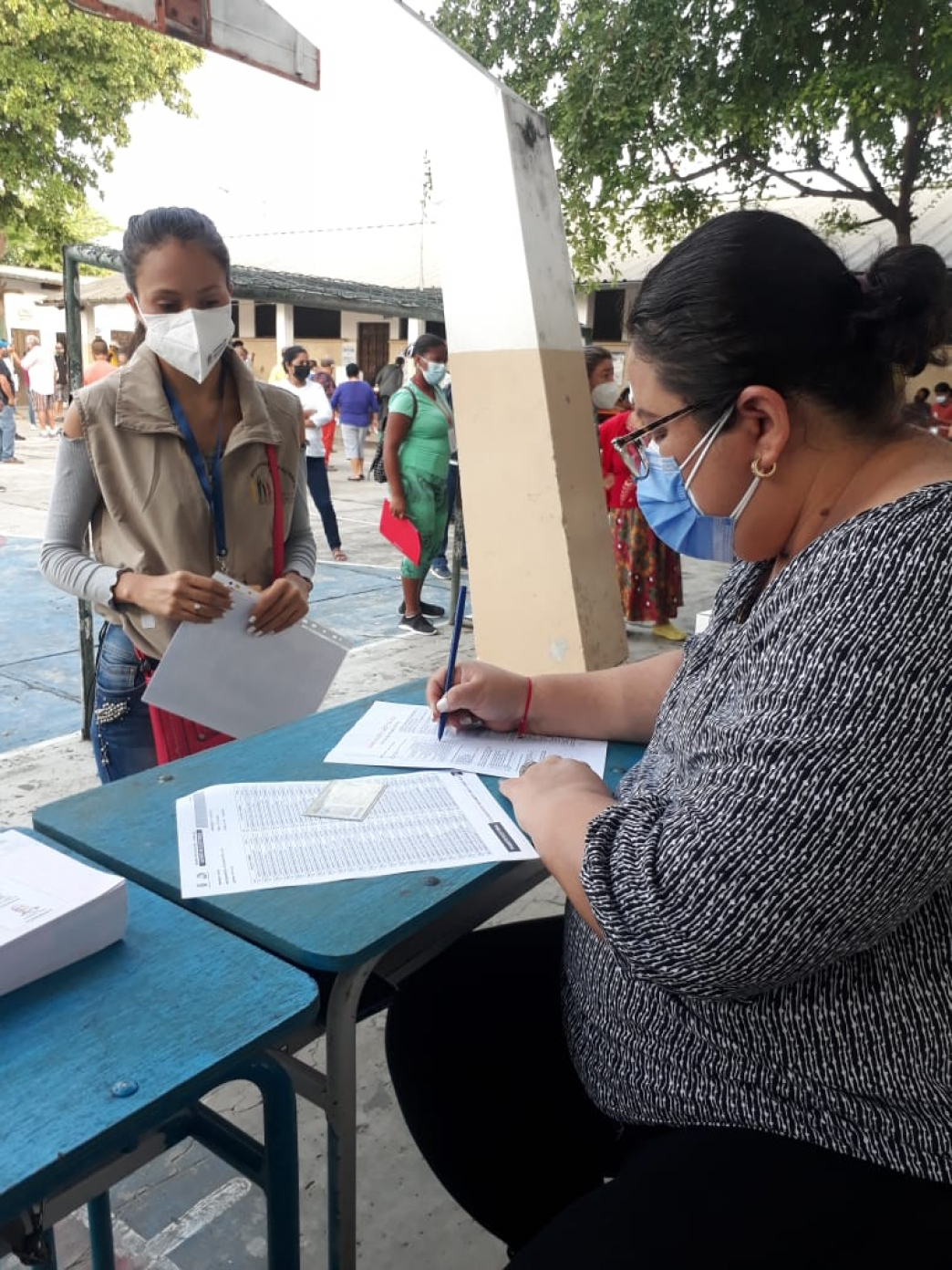
SHARE
On April 11, 2021, Guillermo Lasso, businessman and member of the Creating Opportunities Movement (CREO) party won the Ecuadorian presidency with 52 percent of the vote in a process that was seen by its citizens as a more transparent, free and fair election. Leading up to the election, NDI and its partners in Ecuador worked to facilitate a more transparent and inclusive election cycle. By implementing initiatives to address disinformation; monitoring campaign finance and violence against women in politics; and helping the National Electoral Council (CNE) host the first-ever obligatory presidential debates, NDI supported clear progress on Ecuador’s democratic journey.
To help address disinformation surrounding electoral agencies and the 2021 electoral process, NDI worked with Ecuador Verifies (https://ecuadorverifica.org/), a disinformation coalition made up of seven universities, nine civil society groups and 17 media outlets. The coalition focused on detecting and mitigating the impact of disinformation generated during the 2020-2021 elections. With trained volunteers, Ecuador Verifies corroborated more than 150 news stories and more than 100 presidential candidates’ statements and published 13 weekly summaries of their fact-checking efforts. Thanks to this work, Ecuadorian voters were better informed, less impacted by misleading statements and news stories, and able to evaluate campaigns and candidates.
NDI also supported a political finance monitoring initiative implemented by its partner Citizenship and Development Foundation. The foundation regularly provided comparative information on political finance on the Political Finance Observatory website (Cuentas Claras: https://cuentasclaras.org/), and trained representatives of the media on new political finance regulations. Their work on political organizations’ records and use of public and private funds helped increase the public’s knowledge of political finance, identify weaknesses in the political finance system in Ecuador and resulted in several concrete recommendations for future reforms.
“Thanks to the website Cuentas Claras, for the first time in Ecuador, the electoral financial process is explained through reliable data and friendly content,” said Mauricio Alarcon, Director of Citizenship and Development Foundation.
NDI also collaborated with the Ecuadorian NGO, Citizen Participation, to bring NDI’s #NotTheCost (#ElCostodeHacerPolitica) campaign against gender-based violence in politics in Ecuador. The resulting report, “Women, Politics and Equality,” highlights the importance of gender equality in politics and includes recommendations to reduce inequality gaps and end violence against women in politics. Citizen Participation also trained political party representatives on the implications that recent electoral reforms to increase women’s political participation have on current practices and candidate selection policies.
Due to recent reforms, the 2021 electoral process was the first time the National Electoral Council (CNE) was required to host debates and in which the candidates were required to take part by law. Together, FARO Group (GF) and NDI, led a participatory process to develop a first-time debate regulation based on international best practices. NDI and GF brought CNE officials together with Latin American debate practitioners from Chile, Argentina and Mexico through Debates International, a 38-country network co-founded by NDI and the U.S.-based Commission on Presidential Debates to exchange approaches and experiences on staging candidate debates. GF and NDI assistance included regular consultations with the CNE to develop the debate regulation, shape the presidential debate format and topics, inform the selection of moderators and create communication pieces to provide information on the debates for the media and the general public. For both the first round (with 16 candidates) and the run-off, a total of three presidential debates were held, helping voters who tuned in make an informed choice among the candidates.
“NDI’s technical assistance contributed to build and reform the Electoral Organic and Political Organizations law and the Democracy’s Code law, which were driven by the CNE and came into force in February 2020,” said Diana Atamaint, president of the CNE.
For more information on recently passed electoral reforms in Ecuador, please refer to NDI guides on this legislation.
In collaboration with Ecuadorian partners, NDI’s work during the recent elections helped to mitigate the negative effects of disinformation, educate voters on political finance rules at play in these elections, increase the awareness of violence against women in politics and bolster the CNE’s first efforts to implement candidate debates. These initiatives have provided important lessons learned to be shared with other organizations implementing similar programming in preparation for elections in the region.
These program activities were implemented with funding from the U.S. Department of State and the National Endowment for Democracy.
Author: Daniel Arbelaez is a Program Officer on the Latin America and the Caribbean Team
NDI is a non-profit, non-partisan, non-governmental organization that works in partnership around the world to strengthen and safeguard democratic institutions, processes, norms and values to secure a better quality of life for all. NDI envisions a world where democracy and freedom prevail, with dignity for all.



